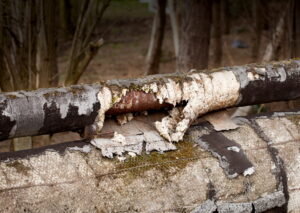If you live in a house built before the 1970s, there’s a high chance that your plumbing system is not up to modern standards. Here at General Plumbing and Air Conditioning, we have seen how outdated materials used in older plumbing systems can lead to problems that affect a home’s water quality, pressure, and even lead to costly leaks. Understanding the issues associated with old plumbing and considering whether to replace your pipes with newer material (repiping) is crucial for maintaining a working plumbing system.
Old Plumbing Materials
Homes built before the 1970s, and in some cases as late as the 1980s, often have plumbing systems made from materials now known to be less effective and durable. These antiquated materials can corrode, clog, and break down over time, leading to water damage, poor water quality, and the potential for major plumbing failures.
We’ll look at three of the most common outdated pipe materials that may be in your house and why you’ll want them replaced.
Cast Iron
Historically favored for its robustness, cast iron pipes were the standard in homes for decades. However, cast iron is highly susceptible to rust and corrosion. As these pipes corrode, they can leach iron into the water supply and become prone to scaling, which reduces water flow and pressure.
Galvanized Steel
Galvanized steel pipes were once popular because of their longevity and resistance to corrosion. Unfortunately, the zinc coating that provides these benefits eventually wears away, leading to rust. Rust buildup not only compromises water quality but can also clog the pipes and reduce water pressure.
Polybutylene
Used extensively from the 1970s through the 1990s, this plastic piping is now known to easily break because it can’t withstand chemicals in the public water supply. These pipes can degrade internally, leading to sudden and unexpected plumbing disasters.
Newer Plumbing Materials
Thanks to advances in plumbing technology, superior materials are now available with better durability, efficiency, and safety. Here are some of the the materials we use most often for repiping:
Copper
Copper pipes are highly durable and resistant to corrosion. They provide an excellent balance of strength and flexibility, making them less likely to burst or break. Additionally, copper does not degrade from chemicals in the water.
PVC and CPVC
Polyvinyl chloride (PVC) and chlorinated polyvinyl chloride (CPVC) are plastic pipe materials that are lightweight, resistant to corrosion, and easy to install. PVC is ideal for drain lines, and CPVC is suitable for hot water lines.
PEX
Cross-linked polyethylene (PEX) has gained popularity due to its flexibility and resistance to scaling and chlorine. PEX is easy to install, and its flexibility allows for long stretches of pipe without joints, reducing the potential for leaks.
Arrange for a Professional Assessment and Repiping Services
Repiping a home isn’t a job you can do on your own or trust to an amateur. We can assess your old plumbing system and recommend the best course of action, whether it’s a partial or whole-house repiping in Boynton Beach. Our team of licensed professionals is equipped to handle all aspects of repiping, from choosing the right materials to ensuring a great installation.
Contact us today for a thorough assessment and expert advice on moving forward with modern, efficient plumbing solutions that will secure your home for years to come.
For Red Carpet Service Every Time, Contact General Plumbing and Air Conditioning in Lake Worth, FL.

